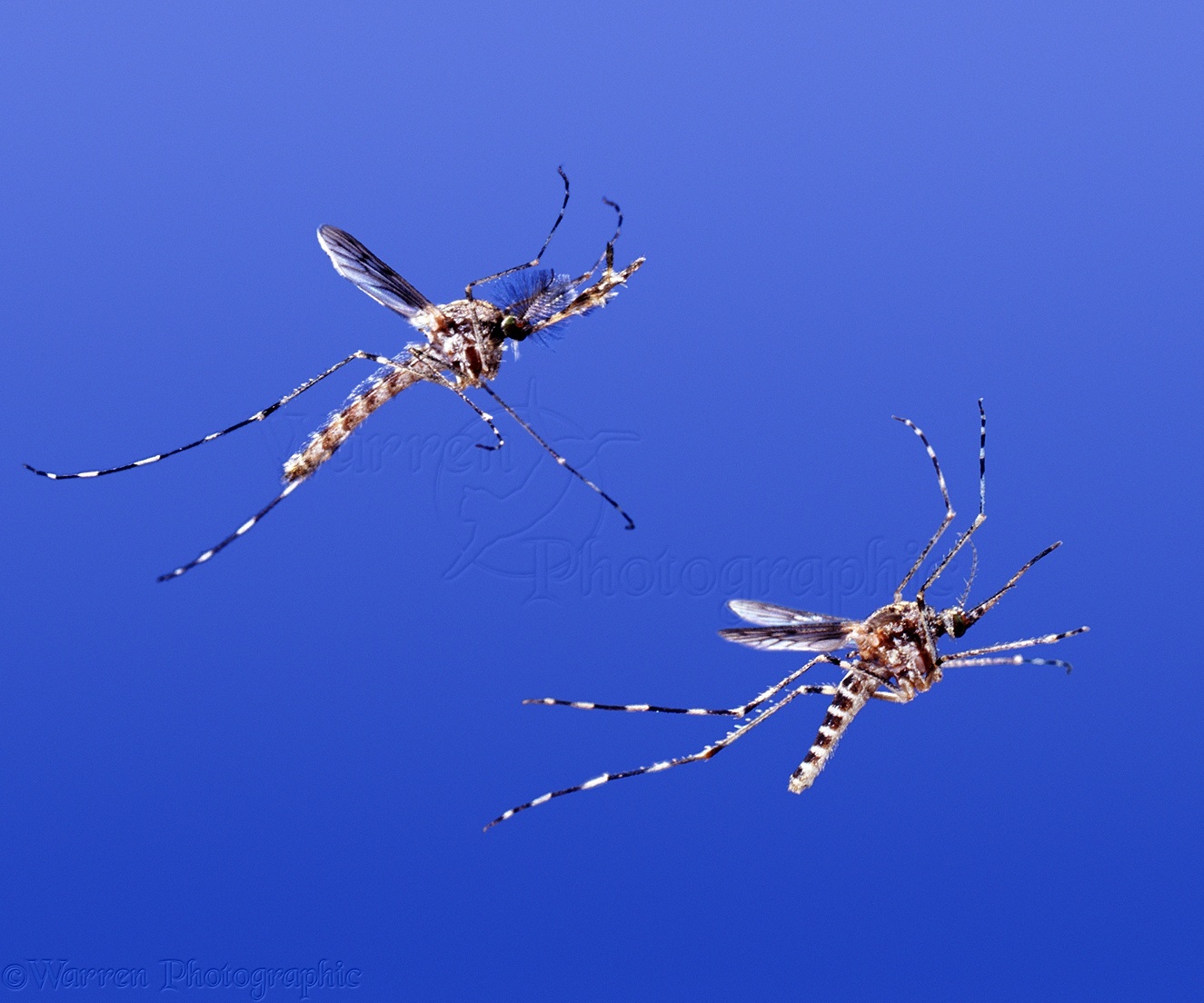WHO cautions however that the use of GMMs raises concerns and questions around ethics safety governance affordability and costeffectiveness that must addressed. Some 10000 sterile male mosquitoes will be released in.
 Scientists Release Controversial Genetically Modified Mosquitoes In High Security Lab Genetics Scientist Genetically Modified
Scientists Release Controversial Genetically Modified Mosquitoes In High Security Lab Genetics Scientist Genetically Modified
According to the WHO statement computer simulation modelling has shown that GMMs could be a valuable new tool in efforts to eliminate malaria and to control diseases carried by Aedes mosquitoes.

Malaria mosquito genetically modified. It works using a technique called a. Mosquitoes genetically modified to resist the parasite that causes malaria mated with wild mosquitoes and transferred the resistance to offspring in laboratory experiments. Target Malaria is starting out very cautiously by seeking regulatory approval to release male mosquitoes that have been genetically engineered to be sterile in Burkina Faso.
Scientists at Uganda Virus Research Institute UVRI have started breeding mosquitoes with the aim of modifying their genetic materials and releasing them to the environment to curb malaria. Genetic Modification Of Mosquitoes Could Provide New Weapon Against Malaria. Genetically modified mosquitoes are much more applicable for diseases like dengue because malaria is carried by so many different kinds of mosquitoes explains Dr Thomas Walker a lecturer at.
The Target Malaria project is using this fact together with genetic modification to game the mosquito population. In lab tests the modified mosquitoes passed on their anti-malarial genes to 995 of their offspring suggesting that the procedure was incredibly effective and efficient. A mosquito designed to quickly spread a genetic mutation lethal to its own species NPR.
A genetically modified fungus wiped out malaria -carrying mosquitoes in a month and a half in trials in west Africa which have come closer than ever before to studying the potential impact of. To track which insects. Their experiment is the first outside the lab to release genetically altered mosquitoes in the hope of reducing their ability to spread the often deadly disease.
WHO recognizes the urgent need for development and testing of new tools to combat VBDs and supports investigation of all new potential control technologies including genetically modified mosquitoes GMMs. Scientists have launched a major new phase in the testing of a controversial genetically modified organism. A new front has been opened up in the battle against malaria with the release of the first ever genetically modified mosquitoes in Africa.
These advances have led to an often polarized debate on the benefits and risks of genetically modified mosquitoes. The insects members of the species that transmits malaria were modified using the powerful gene-editing technique CRISPR to carry a sequence of DNA known as a gene drive which is designed to. With further development the strategy could help reduce disease transmission to humans.
Mosquito larvae can be genetically modified to carry useful new genes such as resistance to the Plasmodium parasites that cause malaria The researchers say the findings offer hope that the same. Scanning electron micrograph of Plasmodium invading a mosquito midgut. Trials which took place in.
Significant progress was made in the control of malaria until 2015 but progress has stalled in recent years. The project alters the eggs of Anopheles gambiae the mosquito species responsible for most transmission in sub-Saharan Africaensuring that they produce only sterile males. Getty – Contributor Oxitecs controversial scheme was in May approved for experimental use in.
Now two unrelated groups of researchers say they have developed new ways to fight the spread of malaria by genetically modifying the mosquitos that spread the deadly parasite. A malaria-free mosquito has been created by scientists using a genetic technology that causes the disease-free trait to be inherited by virtually all its offspring raising the possibility of. Science Photo Library A fungus – genetically enhanced to produce spider toxin – can rapidly kill huge numbers of the mosquitoes that spread malaria a study suggests.
Goats and Soda Scientists demonstrate that a gene drive can rapidly spread a genetic mutation through a species. The mosquitoes DNA has been modified to kill off or reduce local populations of mosquitoes Credit.
 Pin On Genetic Engineering Bioengineering Stem Cell Therapy
Pin On Genetic Engineering Bioengineering Stem Cell Therapy
 Pin On Science Technology Medicine Research
Pin On Science Technology Medicine Research
 An African First A Tiny Nation In Africa Is Ready To Take A Big Biotech Gamble On Wednesday Researchers Announced That T Genetics Fly Free Children In Africa
An African First A Tiny Nation In Africa Is Ready To Take A Big Biotech Gamble On Wednesday Researchers Announced That T Genetics Fly Free Children In Africa
 Gmo Mosquitos Unleashed In Africa Unleash Mosquito Genetics
Gmo Mosquitos Unleashed In Africa Unleash Mosquito Genetics
 Mosquitos In Flight Mosquito Flight Image
Mosquitos In Flight Mosquito Flight Image
 Mosquito Larvae Control How And Why To Get Rid Of Them Insect Cop Mosquito Larvae Mosquito Life Cycle Mosquito
Mosquito Larvae Control How And Why To Get Rid Of Them Insect Cop Mosquito Larvae Mosquito Life Cycle Mosquito
 Pin On Biotechnology And Bioengineering
Pin On Biotechnology And Bioengineering
 Different Species Of Mosquitoes And The Diseases They Carry Identify Them By The Way They Look Different S Mosquito Diy Outdoor Decor Landscaping Inspiration
Different Species Of Mosquitoes And The Diseases They Carry Identify Them By The Way They Look Different S Mosquito Diy Outdoor Decor Landscaping Inspiration






